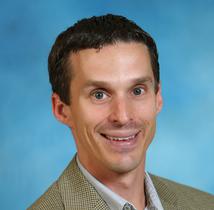NOVONIX Future Innovators
Summer Research Positions in Chemistry
NOVONIX Battery Technology Solutions has provided funding for full-time employment for high school students to conduct scientific research during the summer in Chemistry Laboratories at HÂþ» University. Students interested in applying should refer to the .
The following is a listing of supervisors who are offering NOVONIX Future Innovators projects in Chemistry, along with project titles and descriptions.
 |
Dr. Alan Doucette - Doucette Lab Website Protein purification, separation and analysis by mass spectrometry We are analytical chemists. Our lab uses advanced chemical instrumentation to characterize biological systems. We therefore work in a field called proteomics. Our goal is to create new tools and technologies to better understand how all the proteins in our body work to maintain a healthy system. We have invented commercial devices used by labs around the world to im-prove their ability to study proteins. The most important tool we work with is an instrument called mass spectrometry, which can ‘weigh’ individual protein molecules to determine their composition. We actually have several potential projects related to the analysis of proteins by mass spectrometry, depending on your interests. One thing we’re really excited about at the moment is interfacing a mass spectrometer to a brand new form of separation, called droplet microfluidics. Imagine if you try to mix oil and water – the water forms into tiny bubbles that are carried down a tiny capillary in a stream of oil. Each of these tiny water bubbles can hold different proteins, which the mass spectrometer can detect. It’s never been done before, so this new tool could change the way we study proteins.  The successful student will gain skills in: |
 |
Dr. Mark Obrovac -  Metal-Ion Battery Materials Chemistry The successful student will gain skills in: |
 |
Dr. Laura Turculet - Transition metal catalysts play a key role in facilitating chemical processes that convert abundant raw material resources into value-added products (pharmaceuticals, flavors, fragrances, etc.) in an efficient, selective manner. Chemists have long focused on developing homogeneous catalysts that utilize scarce precious metals such as Pd, Pt, Rh, and Ru. Despite their efficacy, such catalysts are limited by their decreasing availability, and associated high cost. Mining and processing of ores containing such metals is also highly energy intensive, generating large CO2 emissions. Faced with the pressing need to develop increasingly sustainable synthetic processes, interest in the reactivity of Earth abundant metals, such as Mn, Fe, Co, and Ni has grown significantly, with the goal of discovering new, effective catalysts to complement, and possibly supplant, precious metal based technology. While nature has utilized Earth abundant metals such as Fe almost exclusively for catalyzing chemical reactivity, harnessing this reactivity has proven challenging in the laboratory. In this regard, research in the Turculet lab targets the development of new classes of broadly useful, sustainable metal catalysts for atom economical alkene and alkyne hydrofunctionalization, a class of widely used reactions for converting such feedstocks into consumer products. |
